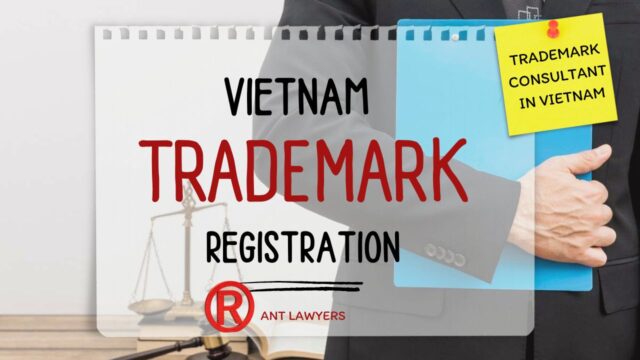Hanoi, the vibrant capital of Vietnam, is a city steeped in rich history and culture. In recent years, it has emerged as a dynamic hub for business and investment, drawing significant attention from both domestic and international investors. The city’s remarkable transformation into an economic powerhouse is underpinned by various strengths that make it a compelling choice for those looking to invest. We will explore the strengths of Hanoi as an investment destination, delve into the improvements in its business and investment environment, and shed light on how attorneys in Hanoi play a pivotal role in assisting foreign clients to confidently navigate this thriving landscape.

Hanoi boasts several key strengths that position it as a premier destination for foreign investment. These factors combine to create a compelling case for businesses and investors seeking opportunities in Southeast Asia.
Strategic Location:
Hanoi’s strategic geographical location within Vietnam places it at the heart of the country’s economic activities. It serves as a gateway to the booming markets of the Asia-Pacific region. Proximity to major trading partners such as China, Japan, South Korea, and Singapore makes Hanoi an ideal hub for companies looking to expand their reach.
Stable Political Environment:
Vietnam, and by extension, which Hanoi being capital, has consistently maintained political stability. The government has implemented policies to support economic growth and attract foreign investment, providing a secure environment for businesses to thrive.
Robust Economic Growth:
Hanoi has been a key driver of Vietnam’s impressive economic growth. Its GDP continues to rise, supported by diversification across various industries. The city’s economic resilience is particularly attractive to foreign investors.
Infrastructure Development:
Hanoi has invested significantly in infrastructure development, including transportation networks, industrial zones, and technology parks. This commitment to improving infrastructure enhances the city’s connectivity and accessibility for businesses.
Thriving Tech Ecosystem:
Hanoi is home to a thriving technology ecosystem, with a focus on high-tech industries such as information technology and electronics. This environment encourages innovation and attracts tech-savvy investors.
Educational Excellence:
The city is host to a multitude of prestigious universities and research institutions. This rich educational landscape ensures a skilled and qualified workforce, which is essential for businesses seeking to establish a presence in the region.
Cultural Heritage:
Hanoi’s cultural heritage, with its historic sites, vibrant street markets, and diverse cuisine, adds a unique charm to the city. This cultural richness appeals to tourists and investors alike.
Evolving Business and Investment Environment
Over the years, Hanoi has made significant strides in improving its business and investment environment. These improvements have been instrumental in attracting foreign investors and fostering a conducive atmosphere for business growth.
Streamlined Administrative Procedures:
The government has simplified administrative procedures, reducing bureaucracy and red tape. This streamlining of processes has made it easier for businesses to register and operate in Hanoi.
Investment Incentives:
Hanoi offers a range of incentives to foreign investors, including tax breaks, land use rights, and import-export privileges. These incentives enhance the city’s competitiveness in attracting foreign capital.
Trade Agreements:
Vietnam’s participation in numerous international trade agreements has opened up access to global markets. Investors in Hanoi can leverage these agreements for their international expansion plans.
Intellectual Property Protection:
The protection of intellectual property rights has improved significantly. Stringent measures are in place to safeguard the interests of investors, fostering an environment of trust and security.
Financial Services:
Hanoi has a well-developed financial sector, with numerous banks, financial institutions, and investment funds. Access to financial services is crucial for businesses seeking capital and financial stability.
Role of Attorneys in Hanoi
Navigating the intricate landscape of foreign investment in Hanoi requires a deep understanding of local laws, regulations, and business practices. This is where attorneys in Hanoi come into play, serving as invaluable partners for foreign clients.
Legal Expertise:
Attorneys in Hanoi possess extensive legal knowledge of Vietnam’s regulatory framework and business laws. They are well-versed in international law and can provide expert guidance on compliance, contracts, and due diligence.
Market Insight:
These legal professionals have their fingers on the pulse of Hanoi’s business environment. They can offer insights into market trends, industry-specific challenges, and investment opportunities.
Navigating Regulations:
Foreign investors often encounter complex regulatory requirements when entering a new market. Attorneys in Hanoi can help streamline the process, ensuring compliance with all legal obligations.
Risk Mitigation:
Understanding and mitigating risks is paramount in any business venture. Attorneys can assess potential risks, develop risk management strategies, and provide legal solutions to protect their clients’ interests.
Cultural Bridge:
Attorneys in Hanoi act as cultural intermediaries, bridging the gap between foreign investors and local partners. Their knowledge of local customs and business etiquette can be instrumental in building successful partnerships.
Dispute Resolution:
In the event of disputes or conflicts, attorneys play a crucial role in dispute resolution and legal representation. Their expertise can help clients navigate the legal system effectively.
Network Building:
Attorneys in Hanoi often have extensive networks within the business and legal communities. They can connect foreign clients with potential partners, suppliers, and investors, facilitating business expansion.
Due Diligence:
Conducting thorough due diligence is essential before making any investment. Attorneys can assist in conducting due diligence investigations to assess the viability of an investment opportunity
Hanoi’s strengths as an investment destination, coupled with its evolving business and investment environment, make it an attractive choice for foreign investors. Attorneys in Hanoi play a pivotal role in ensuring that foreign clients can confidently navigate the complex landscape of foreign investment. Their legal expertise, market insights, and ability to mitigate risks contribute to the success of businesses seeking to establish a presence in this thriving city. With the guidance of knowledgeable attorneys, foreign investors can unlock the vast potential that Hanoi has to offer, contributing to the city’s continued economic growth and development.
About ANT Lawyers, a Law Firm in Vietnam
We help clients overcome cultural barriers and achieve their strategic and financial outcomes, while ensuring the best interest rate protection, risk mitigation and regulatory compliance. ANT lawyers has lawyers in Ho Chi Minh city, Hanoi, and Danang, and will help customers in doing business in Vietnam.









